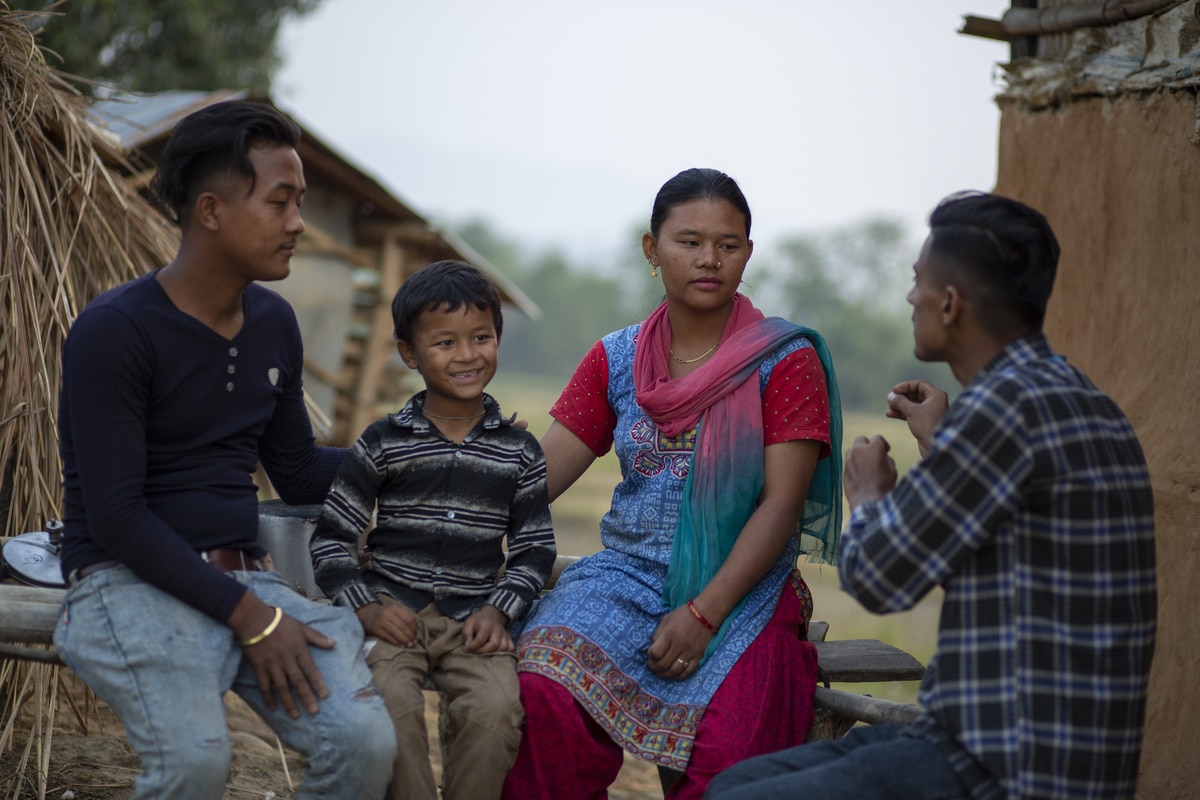This week, our thoughts are with the people affected by the earthquake in Nepal, which struck the remote western part of the country on Friday and has killed more than 150 people and injured more than 375.
Thankfully, we’re glad to report that all the staff from our local partners Forget Me Not Nepal (FMN) and The Himalayan Innovative Society (THIS), based in Kathmandu and Western Nepal are safe. We’re also thankful to share that all the children and families we support – including those in Karnali Province, the area affected – are also safe. However, some houses where the children and families live are damaged.
We know that in emergencies, the risk of children ending up in orphanages always increases. As a result of Friday’s deadly earthquake, some children will tragically be grieving one or both parents. Destruction of homes and livelihoods means many mothers and fathers – some newly widowed – will be pushed deeper into poverty and increasingly worried about how to put food on the table. When families struggle to provide for their children, orphanages are mistakenly often seen as the solution, due to widespread misinformation that orphanages offer better alternative care for children.
Increased pressure on families
These sets of circumstances increase the pressure on struggling parents to send their children away to orphanages. They also increase the likelihood that children without parents, families or trusted adults to protect them will be exploited and trafficked into orphanages. Often this is so that the children can help elicit donations from well-meaning, but misinformed, tourists and donors – as we saw following the two devastating earthquakes in April and May 2015.
We cannot let this happen.
Every child has the right to grow up in a safe loving family, not shut away in orphanages.
What we’re doing in Nepal
With our support, our local partners in Nepal work to prevent children being wrongfully separated from their families and sent to orphanages, by
- working with the government to closely monitor and close orphanages
- raising awareness and sharing the truth about the harms of institutions
- supporting families at risk of separation
Now, with vulnerable children at risk following the earthquake, our work is more important than ever.
Winter Appeal We need your help
By giving to Winter Appeal you can help protect children and families suffering after the Nepal Earthquake and across our programmes
Crisis response
In particular, our partners will be responding to the earthquake in three areas: humanitarian support, counselling support, and prevention:
Humanitarian support: Our partners will now be working closely with the local authorities in Karnali Province to ensure that vulnerable children and families are provided with food, tents, clothes, blankets, and counseling services to calm their fears and give them hope.
Counselling support: Our team will be following up with families to provide in-person and remote support and guidance – recognising that the impact of the earthquake is both immediate but also that there are now higher long-term risks of traffickers luring families to send their children to orphanages in cities.
Preventing institutionalisation and child trafficking: Our Reintegration team are in close communication with Karnali provincial and local authorities in the earthquake-affected districts – Jajarkot and Rukkum – about the need to prevent institutionalisation and alert them about the risk of children being trafficked into institutions.
